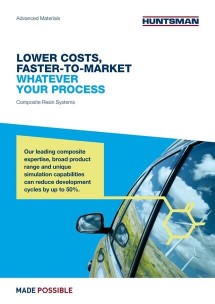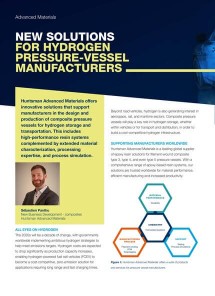Composite Resin Systems
For electrified vehicles, weight reduction translates to higher range and/or lower cost. Composite materials offer not only lower weight, but mechanical performance and corrosion resistance properties that are equal to or better than metal. Our lightweighting composite solutions enable OEMs to meet their sustainability targets by reducing the carbon footprint of vehicles usage during their entire life. Typical automotive applications for composites include body-in-white components, wheels, leaf springs, battery housings and pressure vessels.



